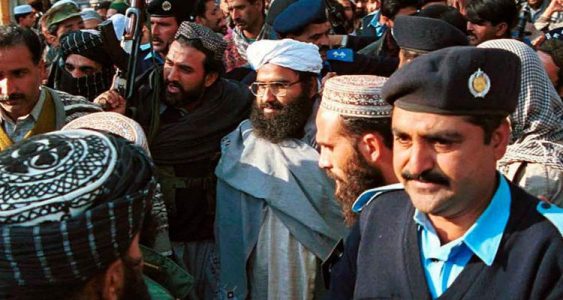
Pakistan faces blacklisting as a country that finances terrorism
Pakistan is trying to avoid getting blacklisted by the Financial Action Task Force, a global watchdog, when it meets Wednesday in Paris.
A report earlier this month by the task force’s Asia Pacific Group, which monitors Pakistan’s progress, is not encouraging.
The report says Pakistan has fully implemented only one item from a list of 40 measures that the country should be taking to curb terrorist financing and money laundering. The other 39 measures were either partially implemented or in some cases overlooked entirely.
Iran and North Korea are currently the only two countries on the blacklist.
Being blacklisted would be a serious blow for Pakistan’s Prime Minister Imran Khan as he tries to boost its faltering economy and attract foreign investment and loans.
Pakistan got a mixed review for its efforts to curb terrorist financing and money laundering as it tries to avoid getting blacklisted by the Financial Action Task Force, a global watchdog, when it meets Wednesday in Paris.
A report earlier this month by the task force’s Asia Pacific Group, which monitors Pakistan’s progress, was not encouraging. It found Pakistan had fully implemented only one item from a list of 40 measures that the country should be taking to curb terrorist financing and money laundering, if it wants to stay off the blacklist. The other 39 measures were either partially implemented or in some cases overlooked entirely.
Iran and North Korea are currently the only two countries on the blacklist.
Just as Pakistan has been trying to get on its feet financially, having secured a $6 billion loan from the International Monetary Fund and a $6 billion package from Saudi Arabia, it might get knocked back down by getting put on the list.
“It would no longer be business as usual in Pakistan,” said Amir Rana, director of the Islamabad-based Pakistan Institute for Peace Studies.
Being blacklisted could even jeopardize Pakistan’s multi-billion dollar part in China’s Belt and Road Initiative, a global endeavor aimed at reconstituting the Silk Road and linking China to all corners of Asia. In Pakistan, it has been billed as a massive development program that will bring new prosperity to the South Asian nation, where the average citizen lives on just $125 a month.
But if Pakistan is blacklisted, every financial transaction would be closely scrutinized, and doing business in Pakistan would become costly and cumbersome, said Rana. He said restrictions could be imposed on international lending agencies, including the International Monetary Fund, Asian Development Bank and the World Bank, which are all key money lenders to Pakistan.
Rana also said Pakistan hasn’t made the institutional changes it needs to seriously tackle terrorism financing and the terrorist-declared groups that still operate in Pakistan — some of whom have been resurrected under new names.
He blamed police and bureaucratic incompetence, mismanagement and a conflicted military and intelligence apparatus. These security agencies are still undecided about whether to break all ties with groups they have long considered “assets,” particularly against neighboring India, Pakistan’s longtime nemesis.
At one juncture, Rana said Pakistan had sought to differentiate between what it considered bad and worse groups. Authorities put anti-India groups like Lashkar-e-Taiba in the less dangerous category, and put groups like al-Qaida, Tehrik-e-Taliban and the Baluchistan Liberation Army on the more dangerous list.
Source: GV Wire





